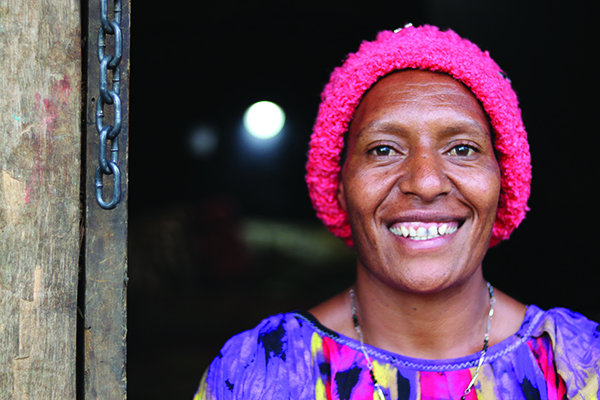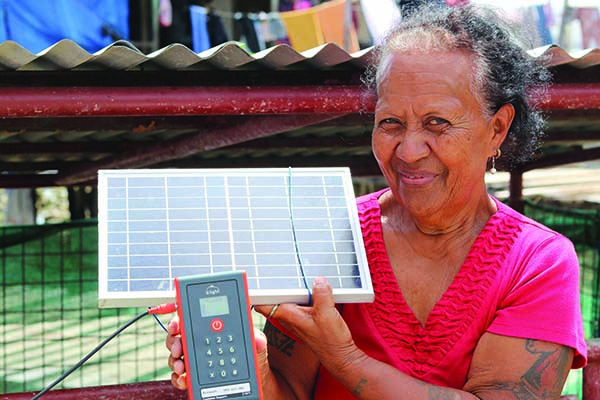Clean, green, and affordable: Scaling a solar solution in remote Papua New Guinea
The Papua New Guinea Government's hopes to connect 70 per cent of the population to electricity by 2030. With current connectivity at 13 per cent, the goal has created an opportunity for Australian companies like Sola PayGo to take innovative solar solutions to scale and help transition households from carbon-intensive fuels. In doing so, it is also helping Papua New Guinea meet its target of switching to 100 per cent renewable energy use by 2030.
Sola PayGo, is distributing reliable solar power units to remote rural areas, spurred on by a partnership with the Australian Government. From an initial target of 2,500 households, Sola PayGo has today reached more than 9,000 households, many of which are in the hard-to-reach provinces of the Highlands Region.
Sola PayGo's solar units use a pay-as-you-go model to provide lighting, charge phones, radios, torches, and televisions, and are now being trialled to power fridges. The transition from dirty and expensive fuels has been welcomed by customers:
Before Sola PayGo we were using kerosene lamps that smoke which made us sick. Now that we are using solar, we have all the benefits. At night the kids are happy to study, and I can make my bilums (woven bags) as well
Beverlyn,
schoolteacher,Enga Province.
In 2019, Sola PayGo partnered with the Australian Government, payment services provider Bmobile, and product manufacturer d.light through the Business Partnerships Platform (BPP). The BPP supports partnerships between inclusive business and the Australian Government to create social and environmental impacts through core business operations.
The partnership with the Australian Government enabled Sola PayGo to test, innovate, and refine its model to distribute reliable solar power units. In 2020, an impact study found all of Sola PayGo's customers reported an increase in quality of life, with 97 per cent of customers rating the improvement as significant to extremely significant.
Jenny Ramamurthy, the Australian co-founder or Sola PayGo, has supported her team to work remotely throughout the COVID-19 pandemic, finding new efficiencies in the service delivery to customers.
We coordinate as a team online and this has meant introducing a number of new platforms to keep the information flowing
Sola PayGo,
Co-founder
Jenny Ramamurthy
Given the variability of internet connectivity in Papua New Guinea, and the challenges for staff to work remotely, this has been a major shift in conducting daily operations. As a result, staff have gained new skills and developed a range of new systems for collaborating online.
For more information, including partnership opportunities, sign up to the BPP's mailing list at www.thebpp.com.au


